This month, we update you on developments in Colombia, Venezuela, Brazil, Peru, Argentina, Ecuador, Bolivia, Chile and Paraguay. We alert you to three recent or upcoming Amnesty reports: on the use of repressive, mandatory quarantines under COVID-19 in three countries in the Americas; on the lack of protection for Human Rights Defenders in Colombia; and on the arbitrary detention, disappearance, torture and death of a retired Navy captain in Venezuela.
In other public statements, Amnesty has condemned the torture and excessive use of force by the Colombian police; called for a renewal of the mandate of the Independent International Fact-Finding Mission on Venezuela; called for more investigation into the police force killings in Rio de Janeiro; and called on the Brazilian Government to return control of environmental monitoring and law enforcement to the appropriate civilian authorities in light of the alarming spate of fires in the Amazon.
We have one new and one updated Urgent Action for you: one relating to the killing of Roberto Carlos Pacheco, a Human Rights Defender, in Peru; and the other to the discovery of the body of Facundo Astudillo Castro, who disappeared after his arrest in Argentina.
REGIONAL
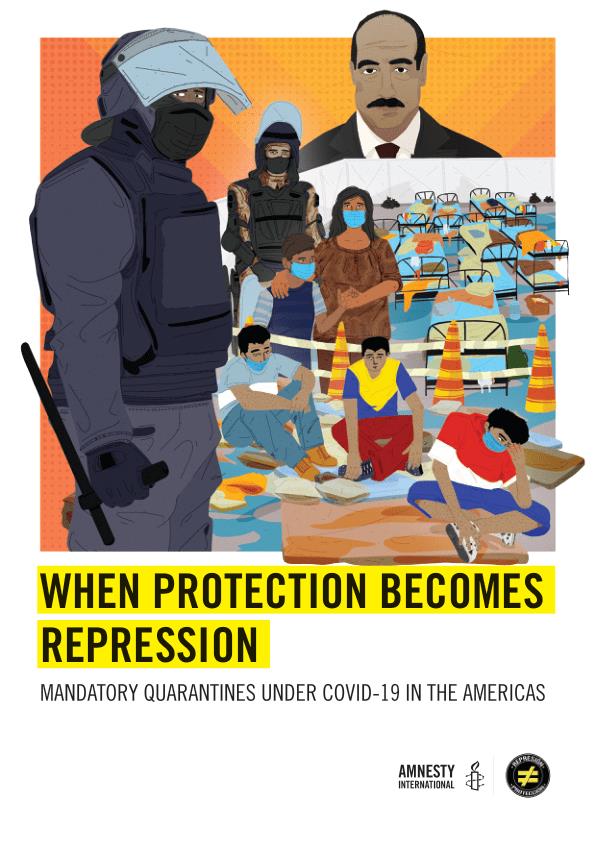 Since the outbreak of the COVID-19 pandemic in March, authorities in Venezuela, El Salvador and Paraguay have held tens of thousands of people in inadequate state-run quarantine centres without sufficient safeguards against human rights violations. In the latest chapter of its series of reports on human rights in the Americas under COVID-19, When protection becomes repression: Mandatory quarantines under COVID-19 in the Americas, Amnesty has documented how the authorities in these countries have disproportionately held migrants, refugees, people returning to their countries of origin, and low-income communities in state-run quarantines, often in insanitary and sometimes inhumane conditions without adequate food, water and medical care.
Since the outbreak of the COVID-19 pandemic in March, authorities in Venezuela, El Salvador and Paraguay have held tens of thousands of people in inadequate state-run quarantine centres without sufficient safeguards against human rights violations. In the latest chapter of its series of reports on human rights in the Americas under COVID-19, When protection becomes repression: Mandatory quarantines under COVID-19 in the Americas, Amnesty has documented how the authorities in these countries have disproportionately held migrants, refugees, people returning to their countries of origin, and low-income communities in state-run quarantines, often in insanitary and sometimes inhumane conditions without adequate food, water and medical care.
The COVID-19 death rates reported for South America are among the highest in the
world. Peru has the highest death rate of any country in the world with 938
deaths per million. Other countries with high death rates include Chile, Brazil, Colombia, Ecuador and Bolivia. This article reports on the impact on indigenous communities in the Amazon.
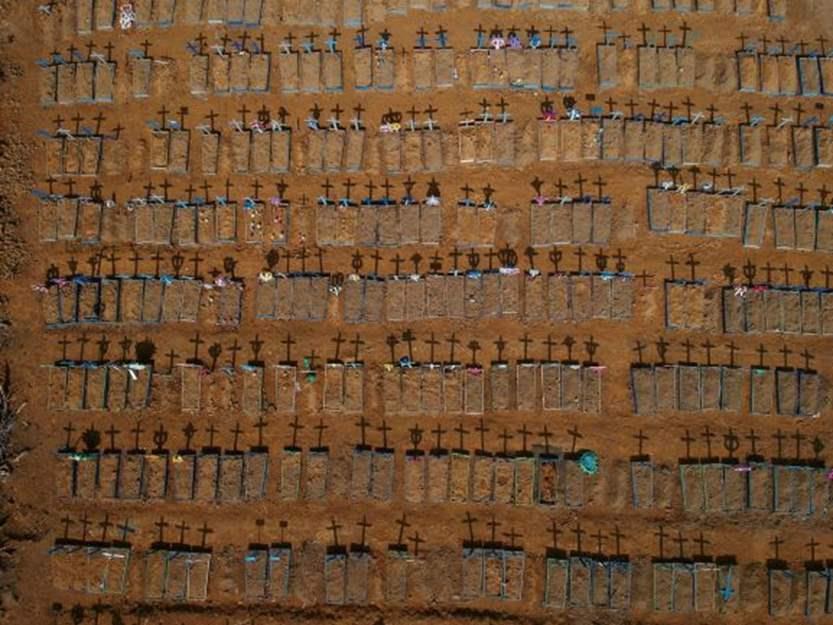
26 September was the deadline for countries to sign the Escazú Agreement. 24 countries, more than two thirds of the region, have signed it. For it to come into force, at least 11 countries must ratify it and 10 have already done so. The agreement, the first regional environmental treaty in Latin America and the Caribbean, sets new standards for protection of the environment and human rights that guarantee access to information, citizen participation and access to justice on environmental issues. It is the first international treaty to include specific measures for the protection of environmental rights defenders.
COLOMBIA
Amnesty is about to launch a new campaign with the report Why Do They Want to Kill Us? aimed at the lack of or ineffective protection that human rights defenders receive in Colombia. The report includes new cases and we’ll send you further details shortly.
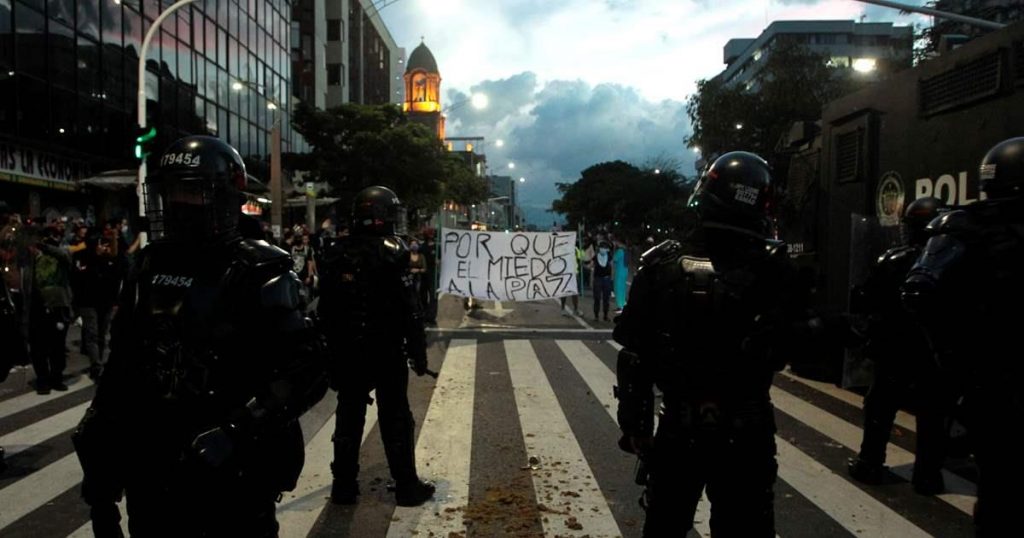 Amnesty has issued a public statement condemning torture and excessive use of force by the Colombian police. This follows the death of the lawyer Javier Ordoñez at the hands of the police using Taser guns and the use of violence including firearms against people protesting his death. On 10 September, the Minister of Defence, who is responsible for the National Police, reported that 403 people were injured (194 of whom were members of the security forces) and 10 people were killed during these protests.
Amnesty has issued a public statement condemning torture and excessive use of force by the Colombian police. This follows the death of the lawyer Javier Ordoñez at the hands of the police using Taser guns and the use of violence including firearms against people protesting his death. On 10 September, the Minister of Defence, who is responsible for the National Police, reported that 403 people were injured (194 of whom were members of the security forces) and 10 people were killed during these protests.
The Defence Minister has refused to comply with a Supreme Court order to curb police brutality and has threatened to imprison critics, according to Colombia Reports.
AP news reports on the large number of massacres that have resulted in the death of 230 people so far this year, double all last year’s killings. ‘The deaths signal a new chapter in the country’s long history of bloodshed. Rather than the previous national dispute between guerrillas and the state, violence in rural Colombia is now marked by a patchwork of local feuds between criminal groups that fight over drug routes, illegal mines and even gasoline smuggling routes.’ The disputes are mostly in areas that were vacated by the FARC following the 2016 Peace Agreement with the Colombian government.
The Internal Displacement Monitoring Centre reports that about 1,350 people were forcibly displaced in September. 450 people from Alto Baudó, in Chocó, fled clashes between ELN and AGC forces, 750 people from Isla Amargura in Caceres, Antioquia, fled following threats from a yet unidentified armed group and 148 people in Policarpa, Nariño fled clashes between organised armed groups. The IDMC estimates that 5.6 million Colombians are internally displaced, a number only exceeded by Syria in the world.
VENEZUELA
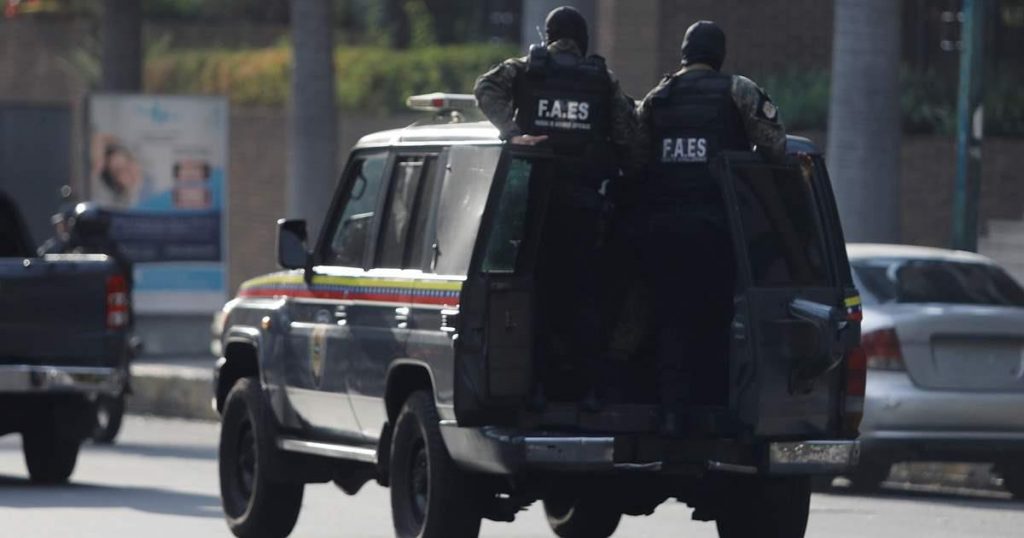 The Independent International Fact-Finding Mission on Venezuela, created by the UN Human Rights Council in September 2019, presented its conclusions in its first report to the Council on 16 September. The Mission found that Venezuela’s security services had been engaged in a pattern of systematic violence since 2014, aimed at suppressing political opposition and generally terrorising the population. According to the report, the government, state agents, and groups working with them had committed egregious violations and its leaders were not only aware of the crimes but gave orders, co-ordinated operations and supplied resources. The Mission, which was refused permission to enter the country, was described by the Venezuelan UN Ambassador as a ‘hostile initiative’. 84 national and international human rights organizations, including Amnesty, have called on states at the UN Human Rights Council to renew and strengthen the Mission’s mandate.
The Independent International Fact-Finding Mission on Venezuela, created by the UN Human Rights Council in September 2019, presented its conclusions in its first report to the Council on 16 September. The Mission found that Venezuela’s security services had been engaged in a pattern of systematic violence since 2014, aimed at suppressing political opposition and generally terrorising the population. According to the report, the government, state agents, and groups working with them had committed egregious violations and its leaders were not only aware of the crimes but gave orders, co-ordinated operations and supplied resources. The Mission, which was refused permission to enter the country, was described by the Venezuelan UN Ambassador as a ‘hostile initiative’. 84 national and international human rights organizations, including Amnesty, have called on states at the UN Human Rights Council to renew and strengthen the Mission’s mandate.
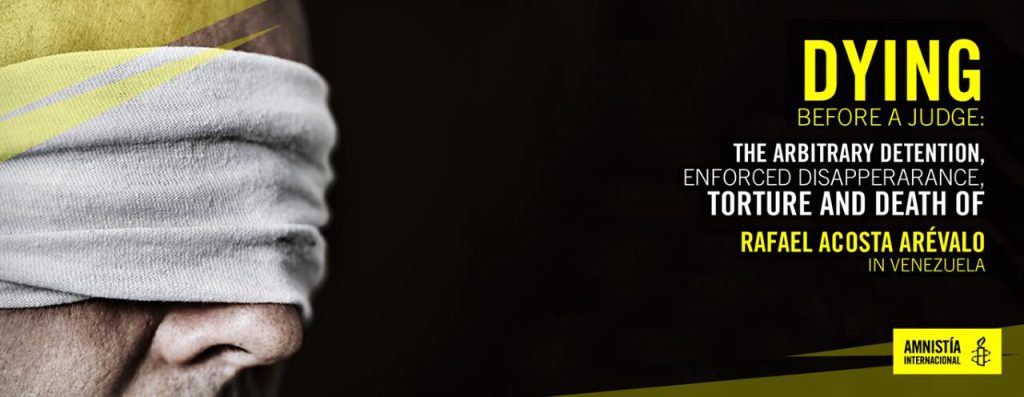 Rafael Acosta Arévalo, a retired captain in the Venezuelan Navy, disappeared in the town of Guatire in the state of Miranda on 21 June 2019. In a new report, Dying before a judge: the arbitrary detention, enforced disappearance, torture and death of Rafael Acosta Arévalo, Amnesty has published new findings on the case that cast doubt on the official version of events and demonstrate Nicolás Maduro’s government’s policy of repression to silence dissent.
Rafael Acosta Arévalo, a retired captain in the Venezuelan Navy, disappeared in the town of Guatire in the state of Miranda on 21 June 2019. In a new report, Dying before a judge: the arbitrary detention, enforced disappearance, torture and death of Rafael Acosta Arévalo, Amnesty has published new findings on the case that cast doubt on the official version of events and demonstrate Nicolás Maduro’s government’s policy of repression to silence dissent.
The good news of the decision to pardon 110 people with criminal proceedings or convictions against them, including several who had been the subject of Amnesty actions, arrived just too late for last month’s newsletter. Those released include Rubén González, Gilber Caro, Maury Carrero and Nicmer Evans. Amnesty welcomed the release of “those who should never have been deprived of their freedom” and called for the release of the many others who have been arbitrarily detained.
BRAZIL
On the anniversary of the police killing of a nine-year old girl in Rio de Janeiro Amnesty calls(in Portuguese) for more investigation into the killing of 1,814 people by police forces in the State of Rio de Janeiro in 2019. It also calls for the State to adopt a security policy based on training its security forces and reducing operations in the favelas as an alternative to its failed ‘war on drugs’.
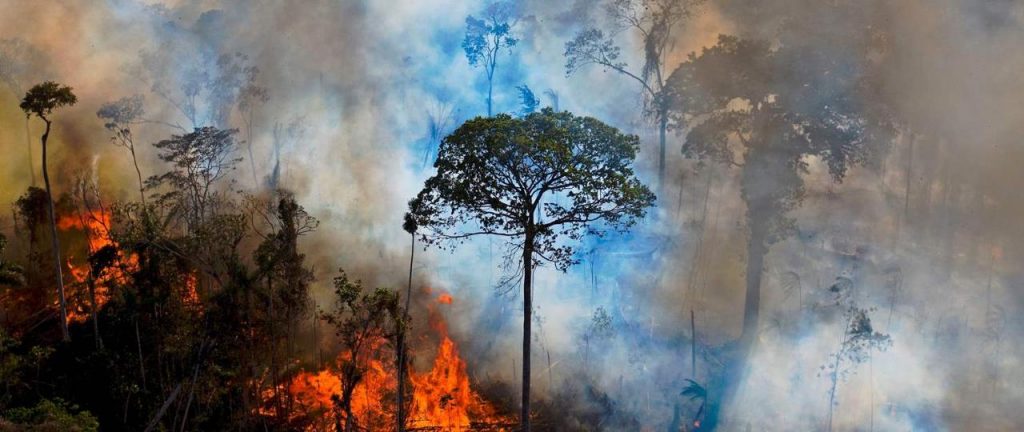 Amnesty has issued a public statement on the alarming spate of fires in the Amazon, numbering 63,000 so far this year, ‘As fires again rapidly expand this burning season, it’s abundantly clear that the Brazilian military doesn’t have the expertise or experience required to stop those torching the forest and illegally seizing protected land.’ and ‘The government should return control of environmental monitoring and law enforcement to the appropriate civilian authorities. The only way to protect the Amazon is for the government to show clear political support for civilian environmental protection in the Amazon, starting by reinstating funding and resources, and supporting agencies to enforce environmental laws.’
Amnesty has issued a public statement on the alarming spate of fires in the Amazon, numbering 63,000 so far this year, ‘As fires again rapidly expand this burning season, it’s abundantly clear that the Brazilian military doesn’t have the expertise or experience required to stop those torching the forest and illegally seizing protected land.’ and ‘The government should return control of environmental monitoring and law enforcement to the appropriate civilian authorities. The only way to protect the Amazon is for the government to show clear political support for civilian environmental protection in the Amazon, starting by reinstating funding and resources, and supporting agencies to enforce environmental laws.’
Volkswagen has paid $5 million in compensation to employees persecuted during the military dictatorship, accepting that it had worked secretly with the then government. A Brazilian government study found that workers considered to be “enemies of the state” were fired, arrested or harassed by police. Many were subsequently blacklisted and unable to find work for decades afterwards, according to The Guardian.
PERU
Roberto Carlos Pacheco, a human rights defender, was shot dead on 11 September by unknown attackers. Pacheco had received death threats since 2012 linked to his activism against illegal mining in the Tambopata Reserve, Madre de Dios region, in the Amazon. Having received insufficient protection measures from the authorities, his family believe they too are in danger. In this Urgent Action, please call on the Public Prosecutor to investigate the murder, bring suspects to justice and protect the Pacheco family.
ARGENTINA
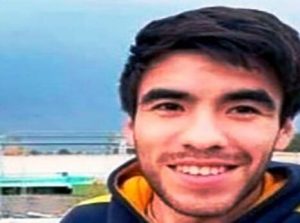
Amnesty has updated its Urgent Action on behalf of Facundo Astudillo Castro after an independent forensic team positively identified his body on 2 September. His unidentified body was found on 16 August after going missing on 30 April in the Province of Buenos Aires. Police arrested Facundo that day for violating the national quarantine imposed by the national government due to the COVID-19 pandemic. On 2 July, Facundo’s family filed a federal complaint to investigate his disappearance. We demand authorities carry out an independent, effective and impartial investigation into those responsible for his disappearance and death, offering truth and justice to Facundo’s family.
ECUADOR
Ecuador’s National Assembly has approved a new health code that would help all in Ecuador enjoy better access to health care. The bill now requires the signature of President Lenín Moreno to become law. The bill would guarantee the right to health universally and comprehensively, including for women, adolescents, girls, and LGBTI people. It also would guarantee access to sexual and reproductive health care, and provide comprehensive services based on scientific evidence.
BOLIVIA
A new Human Rights Watch report accuses the interim government of Bolivia of abusing the justice system to persecute associates and supporters of former president Evo Morales, who himself faces terrorism charges that appear to be politically motivated. The report, “Justice as a Weapon: Political Persecution in Bolivia,” documents instances of baseless or disproportionate charges, due process violations, infringement of freedom of expression, and excessive and arbitrary use of pre-trial detention.
CHILE
On 22 September, the Chilean House of Representatives passed a bill that would punish people who “justify,” “approve of” or “deny” the human rights violations committed during the country’s dictatorship between 1973 and 1990 with up to three years in prison. The bill still needs to be approved by the Senate. Human Rights Watch have called on the Senate to reject the proposal which it says contravenes international human rights standards and would probably do little to stop offensive speech.
PARAGUAY
Violence has intensified in Paraguay in the conflict between security forces and the Paraguayan People’s Army (EPP), a communist guerrilla movement active in the country’s north-east. A former vice-president was kidnapped by rebels days after the military killed two 11-year-old girls in unclear circumstances during an operation against the EPP. The regional office of the United Nations High Commissioner for Human Rights (OHCHR) has called on the Paraguayan government to investigate the killings “impartially and without delay”.
All the best,
South America Team – Richard Crosfield (Colombia, Argentina, Brazil) and Graham Minter (rest of South America)